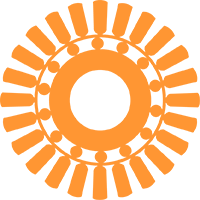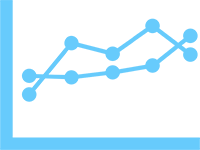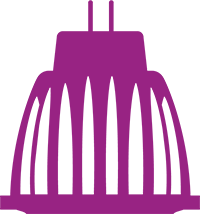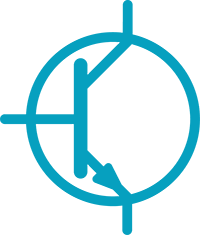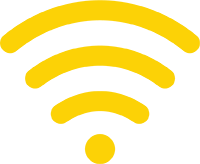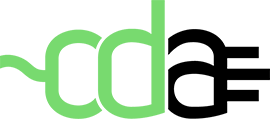4E Technology Collaboration Programme and Platforms Frequently asked questions
What is the 4E Technology Collaboration Programme?
4E is an International Energy Agency (IEA) Technology Collaboration Programme established in 2008 to support governments to formulate effective policies that increase production and trade in energy efficient end-use equipment. 4E is an abbreviation for ‘Energy Efficient End-use Equipment’.
Globally, appliances and equipment are amongst the largest and most rapidly expanding areas of energy consumption and this poses considerable challenges in terms of economic development, environmental protection and energy security. As the international trade in appliances grows, many of the reputable multilateral organisations (for example the G8, APEC and the IEA) have highlighted exchanging of information and the co-ordination of policies amongst countries as a cost-effective means to further improve policies and maximise energy efficiency.
Fourteen countries and the European Commission have joined together to form 4E as a forum to co-operate on a mixture of technical and policy projects focussed on increasing the efficiency of energy consuming equipment. These countries include: Austria, Australia, Canada, China, Denmark, European Commision, France, Japan, Korea, New Zealand, Netherlands, Sweden, Switzerland, the United Kingdom and the United States of America.
But 4E is more than a forum for sharing information – it initiates projects designed to meet the policy needs of participants. Participants find that pooling of resources is not only an efficient use of available funds, but results in outcomes that are comprehensive and authoritative.
How to participate in 4E?
4E is an intergovernmental organisation, and membership of 4E is open to governments of all countries, not only IEA or OECD economies. To join 4E, governments sign an agreement to signify that they will abide by the rules established by 4E, and nominate who will be their representative within 4E. Typically, the national ministry, department or agency responsible for energy efficiency represents each government, although research entities and others may be nominated. The national delegates from each country participate in 4E’s Executive Committee (ExCo). A country is deemed to be a member of 4E once the agreement has been signed and the annual membership fee is paid.
Members may also elect to participate in the work undertaken by individual Platforms, although this is entirely voluntary. 4E members may join any Platform by nominating their representatives and paying the Platform membership fee. Only 4E members can join a 4E Platform.
Membership fees can vary from year to year depending upon the agreed work program. The 2023 annual fees are shown in the table below:
-
Executive Committee €20,000
-
Electric Motor Systems Platform (EMSA) €15,000
-
Smart Sustainability in Lighting and Controls Platform (SSLC) €24,000
-
Efficient, Demand Flexible Networked Appliances Platform (EDNA) €15,000
-
Power Electronic Conversion Technology Platform (PECTA) €20,000
Governments that are considering membership of 4E may request observer status so that they can attend ExCo meetings for a limited period, to meet other participants and better understand the work of 4E.
What do membership fees cover?
The work of 4E involves a high degree of co-ordination amongst participants and significant amounts of research and analysis, and therefore some financial contribution is required. However, the ExCo and Platforms are mindful of the need to keep contributions to a minimum. At the same time, because members are pooling their resources they are able to maximise the impact of their expenditure.
Fees are determined annually according to budgets agreed by participants. The Platform Managers provide a financial report to each ExCo meeting.
The annual 4E ExCo membership fee is €20,000 per country, and covers the cost of funding specific 4E Tasks, secretariat services, publications and promotional activities such as the website.
The fee structure for Platforms varies depending upon the task undertaken by each group, and the degree to which in-kind contributions can be used.
Are there any other costs?
In addition to the payment of membership fees, members of the ExCo and Platforms are required to cover their own travel expenses for meetings, as well as the time needed for these meetings and in reviewing documents and other management functions.
The work undertaken within Platforms usually requires input from participants, which is clearly identified within the Platform proposal. This may involve only the time taken for meetings, or in identifying local sources of information, or in providing contacts. In some cases, countries may be asked to provide local data, for example to conduct international benchmarking activities. Some countries allocate these tasks to specialist staff or to consultants; however this is a matter to be determined by individual participants.
Periodically all participants in 4E have the opportunity to provide additional funding on a voluntary basis for specific activities that are over and above the agreed work program.
How is 4E structured?
4E is managed by an Executive Committee (ExCo) comprising one voting delegate from each participating country.
This executive group meets once every nine months to manage the work programme of 4E, which is laid out within a Programme of Work approved on an annual basis, and to promote the activities of 4E. Secretariat functions for the ExCo are provided by the Programe Manager, funded by annual membership fees.
The collaborative research and development activities under 4E are undertaken within Platforms and Tasks, each of which have a particular focus and agreed work plan.
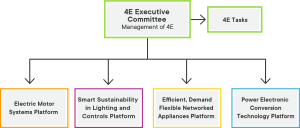
What are Platforms and Tasks?
Platforms are working groups on specific technologies or topics. Platforms tend to have a broader focus and may comprise a range of Tasks that are best suited to issues that require a sustained focus of 3-5 years. Each Platform has one or more ‘lead country’ that establishes the Platform and invites other 4E members to participate. Once approved by the ExCo, Platforms appoint a Platform Manager and are run by their participating members who are responsible for agreeing and managing workplans, setting budgets and organising the tasks to be undertaken.
4E Tasks tend to be shorter-lived than Platforms and typically focus on a single issue. 4E Tasks are funded out of the common 4E fund and therefore require support from all 4E members.
Since 4E is not primarily a research organisation, both Platforms and Tasks are organised around the delivery of outputs that support the development of better policies by member countries. Any member of 4E can bring forward suggestions and ideas for future activities, and are encouraged to do so. The ExCo will consider any reasonable proposal, so long as it can demonstrate that it has support from other participants, does not duplicate other activities, has clear deliverables and is viable.
How frequently do meetings occur?
The ExCo meets once every nine months and alternates between Europe and other participating countries. ExCo meetings typically last for one and a half days and are timed to coincide with other events relevant to equipment policy makers. Platforms have their own meeting schedule, and often include teleconferences to keep participants up-to-date. Some Platform meetings occur around the ExCo meeting so that delegates can attend both.
How is the IEA involved in 4E?
4E is one of 40 active IEA TCPs that form the Energy Technology Network. TCPs were established by the IEA to allow interested member and non-member governments to pool resources and research the development and deployment of particular technologies.
As well as creating a legal contract and a system of standard rules and regulations, the IEA Committee on Energy Research and Technology (CERT) and Governing Board have a formal responsibility to approve new applications for TCPs. The IEA Secretariat also provides legal advice and support, and reports on energy technology collaboration activities through the IEA Web pages and the publication Energy Technology Initiatives.
4E works closely with the IEA Secretariat and contributes to IEA and joint publications, such as the annual Energy Efficiency reports.
Why are there several international organisations interested in energy efficiency?
In response to environmental, energy security and economic challenges, governments have strengthened their commitment to energy efficiency over recent years. Recognising that substantial benefits from energy efficiency will be realised more quickly and at lower cost through collaborative action, governments are driving initiatives to accelerate the dynamic sharing of knowledge, information and expertise both at the political and technical level.
While it may appear that there are many groups working on similar issues, in fact each has a unique role to play in the emerging international network of public and private sector groups with an interest in end-use energy efficiency. Some operate at a very high level, while 4E provides an in-depth focus on appliances and equipment policies based on the experience of governments with long-running energy efficiency programmes.
4E shares this experience with a wide range of groups, including international standards organisations, industry groups and many other intergovernmental organisations, such as the G20, Energy Efficiency Hub, World Bank, World Economic Forum, and the UN.
How long will 4E last?
4E was established in 2008 for an initial five-year period and has been extended three times. 4E recently applied for and was granted an extension for the 2024-2029 period.





























